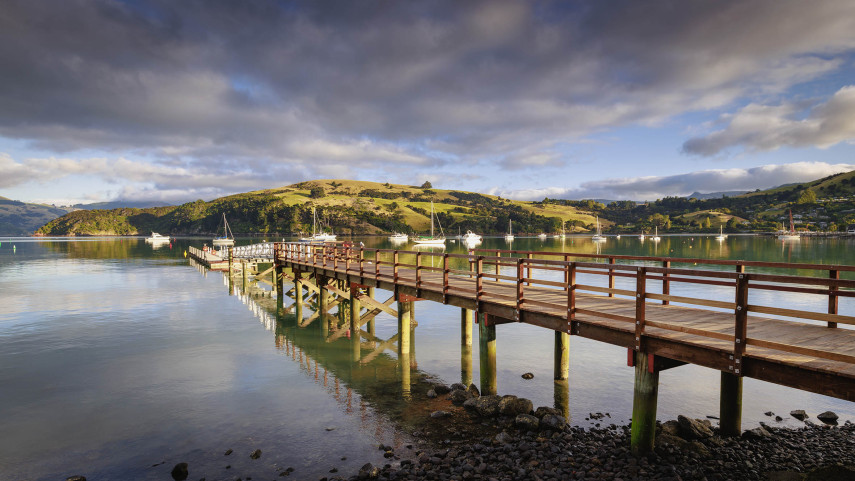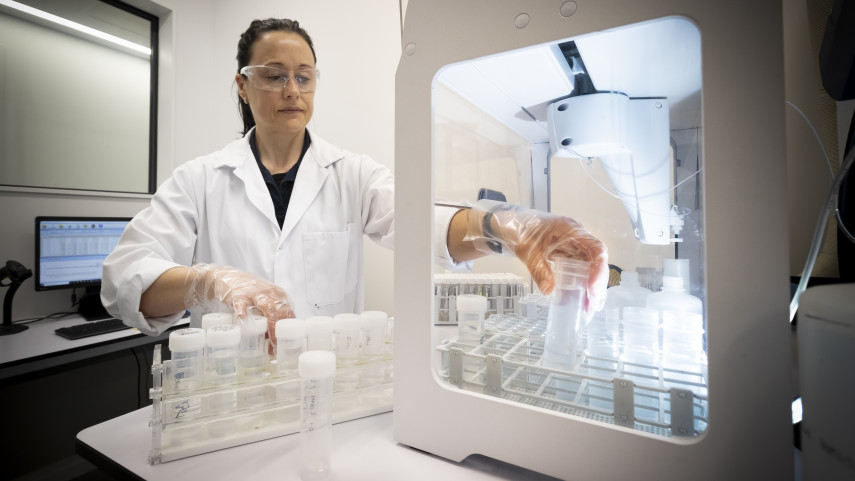Households that regularly use much more water than the average now pay extra for their water supply.
How the rate works
The targeted rate applies to any single household with a water meter that uses, on average, more than 900 litres a day.
Property owners in Christchurch and Banks Peninsula pay a fixed rate of $1.41 for every 1,000 litres they use over the average limit.
Most households are average water users and don’t use enough to receive an invoice.
We read your water meter and invoice you for any excess water use on a quarterly basis (roughly every 90 days). Meter reads cannot be requested.
Generally, the property owner, or the same person who receives the property's rates invoice, also receives the excess water supply invoice.
There won't be a reduction in rates for households that use less water than the excess limit, and no rebates or discounts will apply under any circumstances.
Know and reduce your water use with our Water Reporter(external link).
Bills for excess water use are sent out quarterly, and unlike rates, they won’t come at the same time each quarter. We’ll send you a bill after we’ve carried out your quarterly meter reading.
Your household might only be a high user during warmer months due to outdoor water use - for example filling pools, gardening, and irrigation. If this is the case, you will only receive a bill for periods when your average use is more than 900 litres a day.
You have approximately eight weeks from the invoice date. Payment is due on the Thursday of the eighth week following the issue date.
Pay online
Pay your bill online(external link). There is no surcharge for online credit card payments. We accept Visa and Mastercard.
Remember to put your water account number which starts with 43xxxxxx in the reference field. Do not use your rates account number.
Pay via internet banking
Our account number is 02-0800-0044765-01.
Select one-off payment on your bank's website and fill in the details. Remember to put your water account number which starts with 43xxxxxx in the reference field.
Pay in-person
You can pay by eftpos, credit card or cash at any of our Customer Service Hubs.
Refunds and transfers
You can request a rates refund to refund credit on your property or water rates accounts.
Or you can transfer rates funds from one account to another, for property rates or excess water rates.
If you're unable to pay your invoice please get in touch with us before the due date.
A penalty of 10% will be applied to late payments, and further penalties of 10% on outstanding amounts from previous rating years will be charged on 1 October and 1 April each year.
Apply for a penalty remission
We know the occasional lapse is possible, so with this in mind, we will waive one excess water rates penalty every two years.
Apply online or visit one of our Customer Service Hubs.
You must pay any outstanding rates before the penalty will be waived.
Please note that the 10% penalty is for the current rating year. The penalty percentage is reviewed each year and is subject to change. The actual penalty percentage charged in future years may be different. The Local Government (Rating) Act 2002 allows for the penalty percentage to be up to 10%.
We know some households have higher water use.
If any of these circumstances apply, you might be eligible for a remission:
- Unexpected high use due to a leak, upon proof the leak was repaired promptly.
- Families with more than eight members who are using water responsibly.
- High use due to a personal medical condition.
Apply for a remission
Change to the average daily limit
On 27 June 2023, the Council adopted the Annual Plan 2023/2024. Through the plan, the Excess Water Supply Targeted Rate average daily allowance was increased from 700 litres to 900 litres for residential properties. This took effect from 1 July 2023.
The 900-litre average daily limit
The median annual water use for households in Christchurch is 480 litres per day.
900 litres is plenty of water for use inside the home, and responsible outdoor use, even for large households and families. If your family has nine people or more and is using water responsibly you may also be eligible for a remission.
How we calculate the rate
The 900-litre limit is multiplied by the number of days since your last meter reading to find out your excess water supply limit.
If your water use since your last meter reading is greater than your excess water supply limit, you may receive an invoice.
For example:
- A property's water meter was last read 95 days ago.
- Using the formula above, 900 litres multiplied by 95 gives us a limit of 85,500 litres for the period.
- The property's latest meter reading shows it has used 100,000 litres in those 95 days.
- 100,000 litres is 14,500 litres more than the limit.
- The rate is $1.41 for every 1000 litres used over the limit.
- So 14,500 extra litres is equal to 14.5 multiplied by $1.41, a total charge of $20.45.
Why charge for excess water use
The main reason we introduced the rate is to help reduce the extreme demand on our water supply network at certain times, particularly over the summer.
If we can do this, we won't have to spend as much money upgrading and building new infrastructure to cope with the extreme demand.
When other parts of the country have put in place similar charges they’ve seen a reduction in water use of 20% to 30%.
Your water use
Check your latest recorded water use by using our Water Reporter(external link).
You can also email ratesinfo@ccc.govt.nz or call us on 03 941 8999 (0800 800 169) and we can confirm your water usage.
Water meter accuracy
Water meters are built to remain accurate for many years, and the data we’ve collected from thousands of meters over the years supports this. As they age, they tend to slightly under-read, not over-read.
This means that if you have an older water meter and you trigger the excess water supply targeted rate, you’re likely paying for less water use rather than more.
The Council isn’t required to regularly test or calibrate water meters, but you can request a calibration of your meter if you believe it isn’t accurate.
If we test the meter but find it’s still accurate, then you must cover the cost of the calibration testing. If we test and find the meter is not accurate, then we will cover the costs of the testing and the repair or replacement of the meter.
Querying a meter reading
If you believe your latest quarterly meter reading is incorrect:
- Take a photo of your water meter so that it clearly shows the serial number and current reading
- Email the photo, along with your address, to ratesinfo@ccc.govt.nz.
Reading your water meter and looking for leaks
Learn how to read your water meter and check for leaks(external link).
If a leak is discovered on your property, it’s up to you to get this fixed as soon as possible. We are only responsible for the pipes and fittings up to your property’s boundary.
Leaks in the road
Use our Snap Send Solve app(external link) to report it, or contact us(external link).
Tenanted properties
The property owner, or the person who receives the property’s rates bill, will also receive the excess water supply bill. The landlord must pay the bill and can then ask the tenant to reimburse them.
If high water use is due to a leak, it’s the owner’s responsibility to get it fixed and apply for remission.
Landlords should let their tenants know they have a responsibility to be good water users and will need to pay for excess water use.
Visit the Government's Tenancy Services website(external link) for information about tenants and their water use.
If tenants change in the middle of a billing period
At the beginning and end of each tenancy, it is a good idea to agree with your tenant/landlord on how to do the first and final readings of the water meter.
This ensures each person pays only for the water they use. It is the landlord’s responsibility to manage this.
Shared water meters
Shared meters are also read quarterly and where the water use is much higher than expected for the number of households, we will contact property owners to ask them to investigate and fix any leaks.
Over time these shared meters will be replaced by individual meters with the priority being set by water use.
For the first billing period (October 2022 to January 2023) there were only 194 properties with shared water meters out of the total of 22,781 that would have been eligible to receive an invoice for high water use. We contacted those properties to let them know their water use was high, and that they may have a leak. We’ll continue monitoring water use at shared connections and will be able to see where there is high seasonal use.
In general, households sharing a water meter are low to average water users because the majority are smaller properties within multi-unit developments with very compact or shared gardens.
For the 2022 calendar year, the median use for shared connections was 295 litres per household per day compared with 480 litres per household per day for single residential connections.
Multi-unit developments with a single shared connection and a residential body corporate pay the excess use charges if they exceed the allowance – approximately 348 connections are charged in this manner and we expect this number to increase with the intensification of housing in the city.
Related news

Council briefed on ocean outfall alternative for Akaroa wastewater scheme
Christchurch City Council might, next year, reconsult and reconsider ocean outfall as a potential alternative to land irrigation for its future Akaroa and Duvauchelle wastewater treatment scheme.
1 Jul 2025
Addington Brook renewal progressing well
Stage two of the Addington Brook renewal programme in South Hagley Park is well underway, with half of the earthworks and all of the tree removals now completed.
9 Jun 2025
Thousands of samples prove quality of Christchurch water
All but one of Christchurch city’s water treatment plants are now fully compliant with national protozoa drinking water rules and standards.
22 May 2025